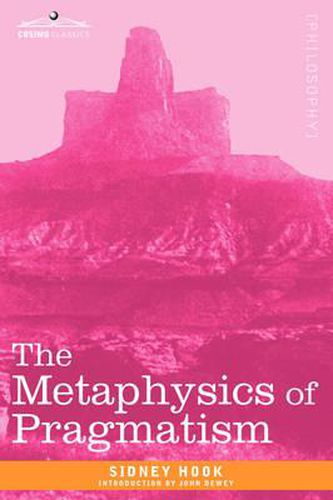Readings Newsletter
Become a Readings Member to make your shopping experience even easier.
Sign in or sign up for free!
You’re not far away from qualifying for FREE standard shipping within Australia
You’ve qualified for FREE standard shipping within Australia
The cart is loading…






Considered by some the most controversial American philosopher of contemporary times, SIDNEY HOOK (1902-1989) was infamous for the wild swing in his political thought over the course of his career, starting out as a young Marxist before the Great Depression and ending up a vehement anti-Communist in his later years. The Metaphysics of Pragmatism-Hook’s first work, originally published in 1927-is something of a malicious joke on the philosopher’s part, one he readily acknowledges in his introduction, a bringing together of one discipline, that of metaphysics, with the one generally regarded as its polar opposite, that of pragmatism, for the purposes of rescuing the second. Though not a political work at all-except, possibly, one of academic politics-this is nevertheless a fascinating introduction to this notorious figure. In its expression of the author’s passionate moral interest in the creative power… of human thinking, it may, perhaps, begin to lend some understanding to the shifts in his own thinking that characterized his work.
$9.00 standard shipping within Australia
FREE standard shipping within Australia for orders over $100.00
Express & International shipping calculated at checkout
Considered by some the most controversial American philosopher of contemporary times, SIDNEY HOOK (1902-1989) was infamous for the wild swing in his political thought over the course of his career, starting out as a young Marxist before the Great Depression and ending up a vehement anti-Communist in his later years. The Metaphysics of Pragmatism-Hook’s first work, originally published in 1927-is something of a malicious joke on the philosopher’s part, one he readily acknowledges in his introduction, a bringing together of one discipline, that of metaphysics, with the one generally regarded as its polar opposite, that of pragmatism, for the purposes of rescuing the second. Though not a political work at all-except, possibly, one of academic politics-this is nevertheless a fascinating introduction to this notorious figure. In its expression of the author’s passionate moral interest in the creative power… of human thinking, it may, perhaps, begin to lend some understanding to the shifts in his own thinking that characterized his work.